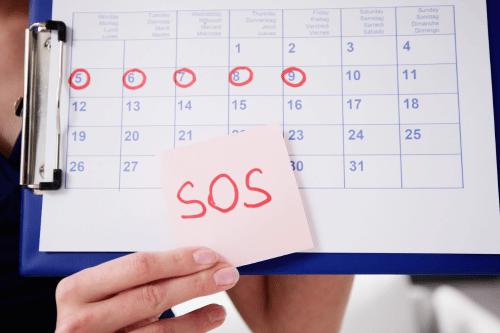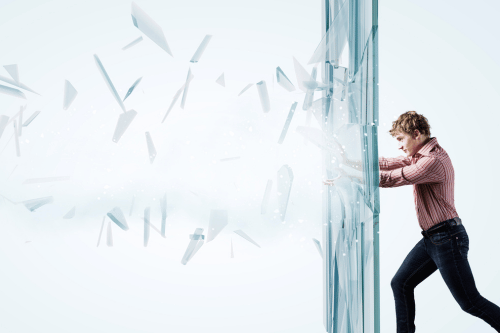

The cycle of addiction describes how substance use can evolve into a chronic condition known as substance use disorder. This disorder involves compulsive drug-seeking behaviors despite harmful consequences. At Rize OC, our mission is helping people break this addiction cycle through professional treatment and comprehensive support.
Recognizing the stages of addiction helps individuals understand how casual use can progress into severe substance dependence.
The addiction cycle starts with the experimentation stage. During this period of time, individuals first try an addictive substance, often due to peer pressure or curiosity. Initial experiences involve pleasurable feelings from the release of dopamine, reinforcing continued substance use.
After experimentation, some people progress to regular substance use. The substance of choice becomes part of daily life or social settings. While usage seems controlled, regular use can quickly lead to bad habits and addictive behaviors.
The abuse stage involves heavy substance misuse, including alcohol abuse and drug abuse. At this stage of addiction, harmful consequences begin to appear, such as health problems, legal consequences, and impaired daily functioning.
Tolerance development occurs when individuals require greater amounts of the addictive substance to achieve the desired pleasurable feelings. This increases addiction risk, as tolerance leads directly to chronic misuse of prescription drugs, alcohol, or illicit drugs.
Dependence marks a critical addiction stage involving both physical dependence and psychological dependence. Physical dependence causes withdrawal symptoms like nausea, shaking, or other physical symptoms if drug use stops. Psychological dependence results in severe cravings, anxiety, or negative feelings without the substance.
Full-blown addiction involves compulsive substance use despite severe adverse consequences. The addicted individual experiences intense cravings and struggles to control drug-seeking behaviors. At this point, addiction is a chronic brain disease significantly affecting brain chemistry and normal functioning.
Relapse often occurs during recovery and involves returning to addictive behaviors after extended periods of abstinence. Stress-induced relapse or physical relapse is common due to the activation of stress neurotransmitters or encountering triggers. High relapse rates highlight the importance of effective aftercare in the recovery program.

Physical dependence occurs when the body needs the substance to function normally. Withdrawal symptoms become common when substance use stops. Common physical effects include shaking, sweating, and nausea.
Psychological dependence involves emotional reliance on drugs or alcohol. Individuals experience severe cravings and negative feelings without the substance, driving compulsive drug-seeking behavior.
The development of addiction involves several key risk factors:
These risk factors contribute significantly to an individual’s vulnerability to substance use.
Common signs of addiction include:
Identifying these symptoms early is critical for successful intervention.
The recovery process requires understanding of substance use disorder and structured professional treatment. Effective treatment breaks the vicious cycle of addiction.
Recovery begins when the addicted person recognizes the need for change. Acknowledging harmful consequences and the chronic disease nature of addiction motivates individuals to seek help.
Professional treatment at an addiction treatment center like Rize OC includes:
Professional treatment improves the likelihood of long-term recovery.
Aftercare strategies reduce the risk of relapse by supporting individuals after primary treatment. These include:
Effective aftercare strengthens the path to recovery.

Breaking the addiction cycle requires addressing both physical and psychological aspects of addiction.
Self-help groups like Alcoholics Anonymous offer valuable peer support. Individuals share personal experiences, providing encouragement and strategies for managing daily life without addictive drugs or alcohol.
Creating a strong support network is crucial. Support systems typically include:
Strong support networks reduce relapse risk by providing emotional and practical assistance.
Research from organizations such as the Mental Health Services Administration and American Psychiatric Association identifies addiction as a chronic brain disease. Brain imaging studies published in the American Journal of Psychiatry and Behavioural Brain Research highlight changes in brain chemistry due to addictive substances. These changes affect dopamine levels, serotonin neurotransmitter function, and overall human brain activity, reinforcing compulsive substance use and repetitive behaviors.
Additionally, the Journal of Substance Abuse Treatment emphasizes individual differences and gender differences in addiction vulnerability, further supported by Behavioral Health Statistics. Understanding these key characteristics guides personalized addiction treatment.
At Rize OC, we recognize addiction as a medical condition requiring comprehensive, professional treatment. Our evidence-based programs address drug use disorder, alcohol dependence, and co-occurring mental health disorders. Our trained professionals assist clients in managing the physical effects of addiction through medical detox and provide behavioral therapies tailored to each individual.
Breaking the cycle of addiction can greatly improve an individual’s quality of life. Through expert support, clients learn strategies for managing cravings, preventing relapse, and maintaining sobriety long-term.
If you or a loved one struggles with substance misuse or addiction, contact Rize OC today.

At Sullivan Recovery, as an in-network provider we work with most insurance plans, such as:
And More
If you or a loved one are struggling with mental health challenges or substance abuse, reach out to Sullivan Recovery today. Our team of compassionate professionals is here to support your journey towards lasting well-being. Give us a call at 949-836-7180.
Common signs include loss of control over substance use, withdrawal symptoms, intense cravings, neglecting responsibilities, damaged relationships, and continued use despite harmful consequences. Recognizing these signs early can help individuals seek treatment promptly.
Physical dependence means the body needs the substance to maintain normal functioning, causing physical withdrawal symptoms if stopped. Psychological dependence involves emotional and mental cravings for a substance, often used to manage stress, anxiety, or negative emotions.
Risk factors for addiction include family history, mental health disorders, traumatic experiences, early substance exposure, peer pressure, and environmental influences. Understanding these risks can help in early intervention and prevention.
Rize OC provides comprehensive addiction treatment including medical detox, therapy, counseling, and aftercare support. We help clients recognize harmful behaviors, build healthy coping skills, and create a stable support network to achieve lasting recovery.